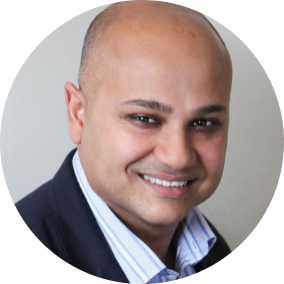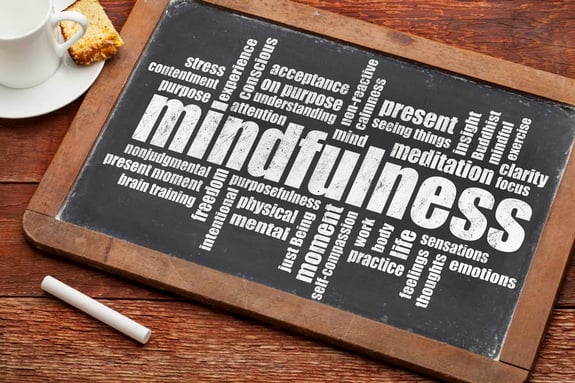These days I go to bed at around 9 pm, but last night (this morning), I was up till 3 am.
Nick Kyrgios faced off with Novak Djokovic at the Wimbledon 2022 finals.
Now, I'm not a big fan of Nick's approach to tennis (more on this later), but I have to confess that I wanted him to see him win.
Why?
Because it's been 2 decades since Australia lifted the Wimbledon trophy.
Sadly, that didn't happen.
Nick started off very well and took the first set by storm. But he went on to lose the next three sets, the match, and the Wimbledon championship.
Now, I'm not a Djokovic fan either.
After having watched Roger Federer pirouette around the court and effortlessly decimate his opponents with unmatched poise and grace, it's hard to enjoy watching any other player on the court.
Anyway, I digress.
Back to the Wimbledon 2022 final.
There was Nick losing his mind like a toddler. He was screaming at one of the fans who'd allegedly had 700 drinks and was heckling him between serves. He was yelling at his team asking them to say something and berating the umpire for not doing his job.
These aren't particularly endearing qualities. Which is why I'm not a fan.
Meanwhile, Djokovic appeared to make a conscious effort to center himself, and proceeded to calmly take control of the second set ... and then the third ... and then the fourth ... and walked away with the trophy.
As it turns out, Novak Djokovic practices mindfulness and has been for some time.
Here's what Novak had to say about his mindfulness approach.
“I believe in the power of the mind and visualisation, which is a big part of my everyday life. I know I cannot influence physically the next day or what’s going to happen in the next weeks or months. But I can send good vibes to the future and then do everything in my power to get myself prepared. Then, when the time comes, I’ll try to seize the opportunity.
It’s mindfulness, this kind of holistic approach in life that allows me to maximise my potential as a human being, from every aspect of my being, not just physical, but mental, emotional, spiritual, I try to be disciplined with all these different kind of exercises that I execute on a daily basis that make me feel good and present and calm and happy. At the end of the day that’s the purpose of life, to have inner calmness and be happy and do what you love to do and enjoy every moment of this life."
I think Novak nailed it.
Based on my experience, mindfulness can have a profound impact on our mental worlds when practiced consistently (this is simple but not easy).
Have you practiced mindfulness?
So what’s mindfulness anyway?
According to Wikipedia, it is “the focusing of attention and awareness” which sums it up quite nicely in my opinion.
Mindfulness, then, is simply the act of doing something with self-awareness and focus in each present moment.
All we have to do is pay careful attention to the mind as we go about our day. That’s it.

The benefits of mindfulness include stress reduction and productivity
According to Buddha’s teachings mindfulness paves the pathway to ultimate freedom – spiritual enlightenment.
The freedom which promises to take us beyond this three-dimensional world. Beyond the realm of time. Beyond the cycle of birth and death.
Wow!
Back in the ‘earthly’ realm, recent research suggests mindfulness practices are useful in the treatment of pain, stress, anxiety, and several other mental afflictions. I have even come across literature on improved decision-making and productivity.
So clearly a mindfulness practice has a lot going for it. At the very least it’s a cure for various neuroses we all seem to wrestle with and at best it’s a gateway to spiritual enlightenment.
And all you have to do is be mindful. Sounds simple right?
Simple? Yes. Easy? No.
The simple but ‘not so easy part’ of a sustainable mindfulness practice
Over the long term it’s remembering to be mindful that’s the hard part. I’ve spent hours reacting to the daily drama that unravels itself in my life with little or no awareness. I keep forgetting that I made a choice to go about my day with self-awareness.
You see … the seductive power of a runaway mind whisks me away into hours, days, and sometimes weeks of oblivion.
Pointless rumination with little or no self-awareness.
I get so caught up in the ‘role’ that I forget to watch ‘the play’.

I get so stuck ‘in the tree’ that I forget ‘the forest’. I get so mesmerized by the branches on the tree that I forget the tree.
Hell, I get so caught up in the leaves on the branch that I forget that the branch is on a tree in a forest!
Do you get my drift?
So what’s a workable solution? How do I keep from getting so involved in the minutia  the leaves) that I forget to be mindful (of the forest).
The solution is to use the tangible breath as a barometer (of the mind)
A year ago I came across a youtube video where Jetsunma Tenzin Palmo – an accomplished Buddhist nun – speaks about the link between the mind and the breath.
She said the breath reflects the state of the mind. When the mind is self-unaware and agitated the breath gets shallow and fast.
When the mind is self-aware and calm the breath gets deeper and slower. We tend to breathe from the belly.
Keeping tabs on my self-awareness via the (relatively tangible) breath is very useful when practicing mindfulness.
Interestingly I discovered that the converse is also true.
When I focus on keeping my breath deep and slow it’s pretty hard for my mind to run away with itself. I feel grounded (in my breath) and can ‘watch’ my thoughts and emotions with some detachment.
Besides, when I’m actively focusing on my breath it keeps my mind productively engaged and that makes it a lot harder for my mind to run away with itself and languish in pointless rumination.
Using my breath as an anchor I ‘watch’ myself go through the day and can successfully ‘opt out’ of the temptation to buy into my dramatic projections with increasing frequency.
Of course, this isn’t an air-tight solution (no pun intended).
Sometimes I ‘forget’ to be aware of my breath and my monkey mind is off swinging through the trees like there’s no tomorrow once again!
But as soon as I become aware of the fact that I forgot, I bring my attention back to my breath and start all over again.
Practise makes permanent (and can have profound positive impacts)
This repetitive process of bringing my attention back to my breath used to leave me feeling that I was going around in circles.

But when I noticed myself being far less reactive to the same situations that used to really rankle me the prior year, I realized I wasn’t going in circles. It was more like an upward spiral.
These incremental changes have been generally imperceptible from day to day. But the cumulative impacts on my general sense of well-being were quite dramatic and ubiquitous.
Developing mindfulness is like building muscle. It grows with use against resistance. I start small and up the ante with time. If I don’t use it I lose it.
The one actionable insight you can take away
Watch your breath. Yup. That’s it.

Be aware of your breath as you go about your day. Inevitably your mind drifts off with one of the many mental hooks that appear as thoughts and emotions.
When you realize your mind has drifted from your breath, gently bring your attention back to your breath and start again. Simple but not easy.
The good news is it does get easier with time and practice. Practiced consistently over time it becomes second nature.
Jon Kabat-Zinn and his work on mindfulness for stress reduction
Jon Kabat-Zinn, a Professor at the University of Massachusetts Medical School is a leading authority on mindfulness.
Look for Jon on youtube where he gives a talk on mindfulness to google employees. It’s pretty comprehensive.
Jon teaches mindfulness meditation as a technique to help people cope with stress, anxiety, pain, and illness. He even created a stress-reduction program that is offered at medical centers, hospitals, and health maintenance organizations.
How’s your breath right now? Deep? Shallow? Fast? Slow?
What about your experiences with mindfulness? Have you practiced it?
How effective have you found it in reducing your stress levels and raising your productivity?
What works for you and doesn’t work for you?
I’d love to know.

